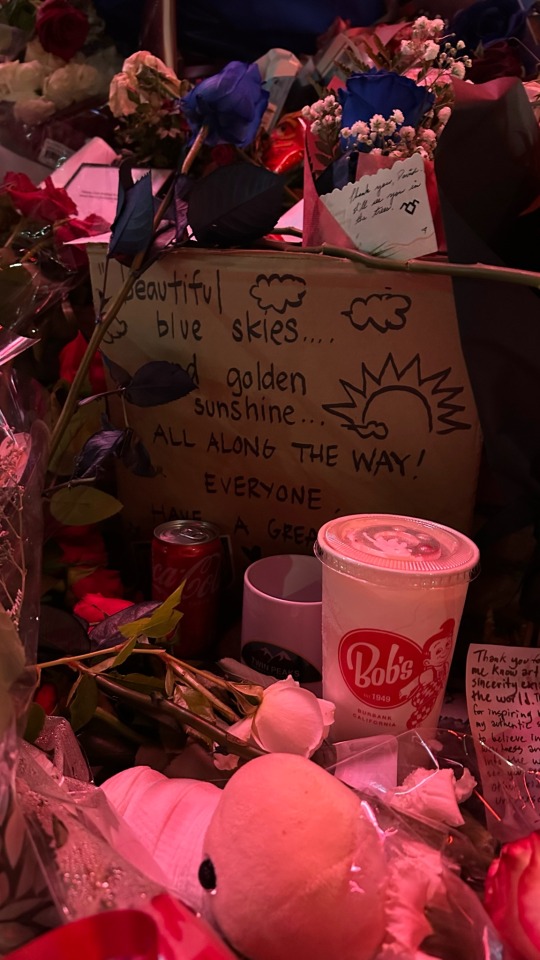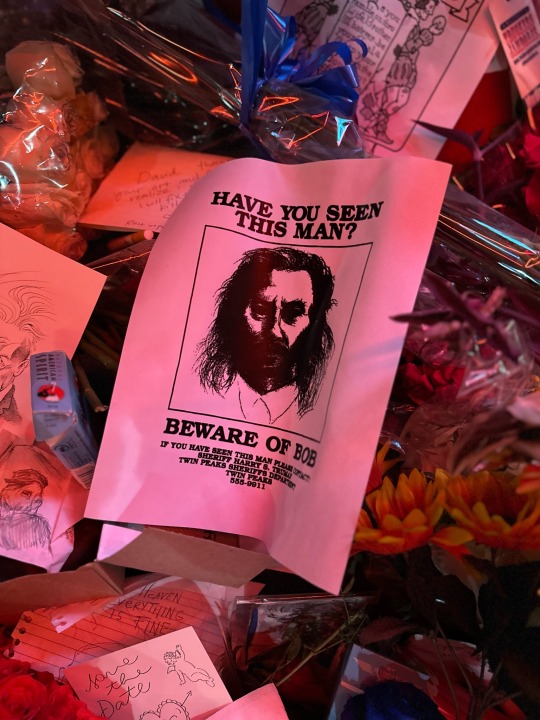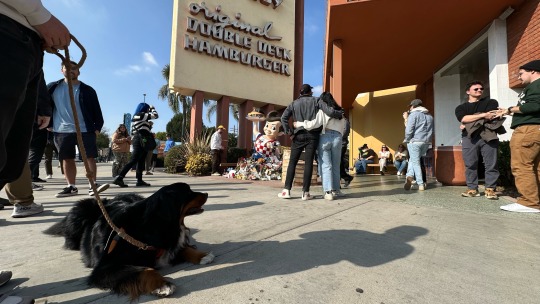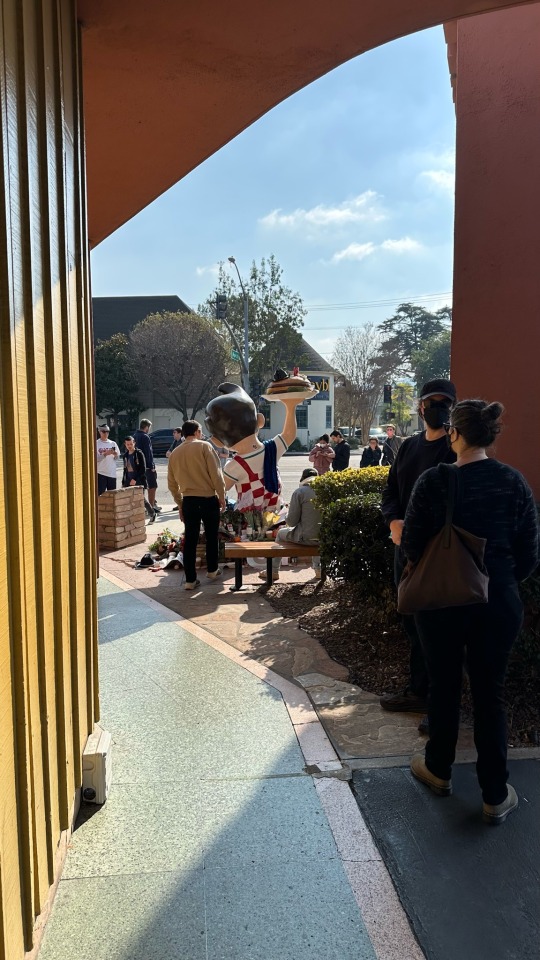#david ferns
Explore tagged Tumblr posts
Photo

Chibi HOF pride: Fern fam edition!
I miss drawing the Fern kids sm ;-;
#bh6 the series#bh6 ocs#ocs#heroes of flowers#chibi#pride month#sara ferns#mikan ferns#david ferns#sienna kline#bisexual#ace pride#intersex#trans#Sparky's art
21 notes
·
View notes
Text
here's to the losers this nishmas
(Yes it was nick instead of Sophie who lost but I'm too lazy to change it and I don't really want to as nick doesn't drown in a river at any point)
#taskmaster#roisin conaty#joe wilkinson#paul chowdry#lolly adefope#nish kumar#alice levine#phil wang#paul sinha#david baddiel#katherine parkinson#charlotte ritchie#victoria coren mitchell#judi love#fern brady#john kearns#ivo graham#lucy beaumont#sophie willan#rosie jones#my edit
185 notes
·
View notes
Text




NEW SET PHOTOS OF ALIEN ROMULUS (2024) !
#alien romulus#alien romulus 2024#alien franchise#alien#behind the scenes#on set#stills#cailee spaeny#david jonsson#archie renaux#isabela merced#rain carradine#kay harrison#spike fern#fede alvarez#horror
245 notes
·
View notes
Text



48 notes
·
View notes
Text

Fern Tree House, David McGlashan, 1969
OPEN HOUSE HOBART: FERN TREE HOUSE TOUR (2020)
This isnt a good video to watch on a phone, due to the tiny proportions of the Youtube upload. But it's an opportunity to take a guided tour of this original-condition mid century house, which, given its Tasmanian location, isn't going to be easy for most of us to visit in person.
We tend to forget when looking at photos of buildings how much our other senses affect the way we experience architecture. When I recall visiting similarly-sited houses in New Zealand, it always seemed that the cacophony of bird song, and the fresh, earthy smell of rainforest drifting through open windows characterised the space as much the physical elements of the building. At least, via this video, we can get some sense of the auditory, as well as visual, experience of the place.
Photograph by Pier Carthew via sixtysixmag
#mid century modern#architecture#australian architecture#tasmsnia#rainforest#fern tree house#david mcglashan
129 notes
·
View notes
Text
Masterlist
Rules for Requesting
Rules for My Blog

Cody Fern Masterlist
Lord Of The Rings Masterlist
Lost Boys Masterlist
Damiano David Masterlist
Outer Banks Masterlist
Urban Wyatt Masterlist
WWE Masterlist
Mayans MC Masterlist
Stranger Things Masterlist
Umbrella Academy Masterlist
Riverdale Masterlist
House of The Dragon Masterlist
Eddie Vedder Masterlist
Yellowstone Masterlist
Avatar Masterlist
The Little Mermaid Masterlist
Call of Duty Masterlist
Formula One Masterlist
Joe Burrow Masterlist
Wattpad
Good Reads
#masterlist#avatar#eddie vedder#cody fern#lord of the rings#the lost boys#the outer banks#damiano david#jack harlow#urban wyatt#stranger things#WWE#Umbrella Academy#riverdale#yellowstone#house of dragons#joe burrow#Joe burrow x reader#Joe burrow x y/n#call of duty#simon riley x reader#formula one x reader
185 notes
·
View notes
Text






Alien: Romulus (2024) dir.: Fede Alvarez
11 notes
·
View notes
Text

'Restored aspect of Oolitic vegetation - palm, screw-pine, Araucaria, Cycas, tree-fern etc.' from The past and present life of the globe. Being a sketch in outline of the world’s life-system by David Page, 1861
https://archive.org/details/pastpresentlifeo00pagerich/page/131/mode/1up
#past and present life of the globe#david page#1861#palaeobotany#oolitic#palm#cycad#tree fern#araucaria
18 notes
·
View notes
Text
partner and i went to Bob’s Big Boy in Burbank last night for the David Lynch memorial spot. it’s nice seeing LA honoring him in this way, but partner noticed that, among all coffee, pies, and cigarettes, there isn’t a piece of blue velvet. so this lazy Sunday morning, we might as well go to Joann’s to get a yard of blue velvet. now it’s there on the big boy’s shoulder.







#I’m unexpectedly experiencing stages of grief over this#learning that he died partially due to the Hollywood fire evacuation didn’t help#especially because it was fucking arson#we enjoyed the Joann’s mission tho#alongside the velvet we left a piece of pie#fern got the cream topping of that pie#she’s happy to share the pie with old dave#David Lynch#Los Angeles
5 notes
·
View notes
Text

so cute so silly

bonus
9 notes
·
View notes
Photo

There are times when David wants to talk to his mom and Momakase wants to talk to her kid but it gets super awkward bc neither of them know how to talk to each other so they just stand in silence and pretend that they don’t want to talk to the other
makes for some awkward time before waiting for a bus...
#big hero 6#big hero 6 the series#bh6 the series#heroes of flowers#momakase#david ferns#bh6 ocs#ocs#Sparky's art#these two have an awkward time talking to each other post com
32 notes
·
View notes
Text
By: Fern Oppenheim, David Bernstein and Eran Shayshon
Published: Jun 14, 2024
While the Jewish world was reeling from the inhumanity of the Oct. 7 massacre, an immediate aftershock came in the form of the anti-Israel rallies on college campuses and on the streets of major cities. Since that time, the protests have only intensified. Opposing Israel has become fashionable in some circles. Campus activists feel imbued with a sense of historic mission, perceiving themselves as the modern embodiment of the protest movements of the 1960s. Many Jewish professionals and lay leaders remain overwhelmed and unclear as to how to proceed. Years of investment in countering various forms of antisemitism have been proven inadequate. It should be clear by now that we need a new strategic approach and a comprehensive plan to enact it.
The post-Oct. 7 reality dictates a strategy that counters underlying ideological currents, places Jewish concerns in the context of broader American interests and upholds American and Western values. The current focus on antisemitism makes it appear that the strife on and off campus is a Jewish problem rather than an American problem. Antisemitism is low on the relevance scale for most Americans, but the health of American society is central. Based on our assessment of what went wrong, current survey data and key trends, we believe that the Jewish security is inextricably linked to firming up larger support for American values and a renewed commitment to the U.S.’s key geopolitical interests. We further argue that American Jewish organizations should prioritize work with new partners in civil society who share this mission and who should take center stage in effecting a larger cultural shift. In short, we believe the best defense against antisemitism is restoring the commitment of Americans to the nation’s founding principles under which American Jews and other minorities have thrived.
What went wrong?
The anti-Israel narrative — Israel as an apartheid, colonialist enterprise — gained limited support on college campuses over the past few decades. Yet trends in survey data indicate that while the anti-Israel narrative caused a slow erosion of support for Israel, the overwhelming majority of college students remained neutral and attitudes towards Jews were largely unaffected. In fact, the data through 2016 indicates that, even in the face of hostile campus rhetoric, most college students and most Americans cared little about the Israeli-Palestinian conflict. The issue was just not relevant to them and they remained in the “middle” — neither “core supporters” nor the “unreachable.” Likewise, antisemitism among college students remained low. Research indicated that the large group in the middle represented an opportunity as it could be swayed towards Israel once it was shown the broader face and humanity of the Israeli people.
So if the same anti-Israel narrative has been around for decades, what explains the dramatic increase in its acceptance now? Simply put, anti-Israel forces have found a way to make their cause relevant to a growing swath of Americans by linking it to the significant cultural and ideological shifts over the past ten years.
With the rise of the Black Lives Matter movement in 2014 and changes in the social media landscape, a binary ideology that divides society into oppressors and oppressed, skyrocketed in popularity on campuses. Anti-Israel groups successfully aligned themselves with activist groups representing marginalized communities, thereby significantly expanding the cohort of young Americans sympathetic to their cause. For the first time, Jewish students found themselves excluded from student social justice activities due to their sympathies towards Israel.
In the heated aftermath of the murder of George Floyd in 2020, this binary, oppressor-oppressed ideology found new audiences outside campuses. Diversity, equity and inclusion (DEI) efforts, which frequently enshrined the oppressor-oppressed ideology, gained broad-scale penetration into numerous mainstream institutions including business, government, media, science, medicine, culture, K-12 schools, etc. So while the State of Israel and, now, Jews are seen by many as white, privileged oppressors in a broad swath of institutions, Hamas is increasingly seen as a legitimate resistance movement representing the marginalized.
It is important to note that notwithstanding the titular expression of solidarity with the Palestinian cause, protests against Israel on U.S. campuses are about far more than the Jewish state. Instead, they are often part of a larger agenda that aims to reshape the power structure, dismantle the larger social order, defund the police, undermine the very notion of meritocracy and undo the market economy and concept of private property. Many protesters on campus explicitly cite this larger worldview as a motivation for their campus activism.
Against this backdrop, it is not surprising that in the wake of Oct. 7, most surveys of young people show high levels of support for Palestinians/Hamas and declining support for Israel. The majority are no longer in the swayable middle. Moreover, for the first time since the Anti-Defamation League began measuring such trends, young Americans are more likely to believe antisemitic tropes than older Americans. In short, by aligning with cultural shifts occurring among the progressive left, anti-Israel forces — many representing extreme Islamist perspectives — have successfully made their narrative relevant to many young Americans.
While the Jewish community was busy maintaining support for Israel in the political arena, ideologues sought to and succeeded in changing the culture. We are now experiencing the downstream effects of our collective failure to counter dangerous cultural trends.
A strategic pivot
If Israel is to retain American support down the road and if Jews are to be safe in this country, then action must be taken to reverse these cultural shifts. For the most part, the Jewish community has responded to the post-Oct. 7th onslaught with well-funded efforts to counter antisemitism and anti-Zionism. It is not doing enough to make its case more relevant to Americans than it was years ago, unlike the anti-Israel camp, which broadened its appeal in the intersectional arena.
Yet there is good news amid the bad. In this highly charged environment, Israel and its allies have lost support among college students, but not among most Americans. Raucous anti-Israel protests on campuses have alarmed many Americans, who are concerned that these anarchists pose a clear and present danger to the U.S. The Jewish communal world needs to take a page from its enemies’ playbook and make its cause more broadly relevant by aligning with the significant percentage of Americans who believe in the American dream, oppose chaos and support the principled use of American power in the world. Jews represent only 2% of the American population; we cannot win this battle on our own.
The Jewish community needs to work with those who are already fighting back on various fronts and to catalyze the energies of those who may be concerned but are not yet taking action. The focus of such coalitional efforts must be on strengthening the American narrative and values, not on antisemitism or Israel. And these efforts need to be led by diverse American voices rather than Jewish groups, as they will be seen as more believable and less likely to have an agenda. In short, the Jewish community needs to lead from behind.
We are currently developing a white paper that lays out in greater detail the needed strategic shift and will be holding sessions in person and online in the coming months. For more information, email: [email protected]
#Fern Oppenheim#David Bernstein#Eran Shayshon#American values#American dream#israel#antisemitism#islam#right wing islam#October 7#october 7 attacks#liberal secular democracy#islamism#jihadism#oppressor vs oppressed#oppressor#oppressed#diversity equity and inclusion#religion is a mental illness
6 notes
·
View notes
Text
Does anyone know where I can watch Heart to Heart (2020)? It's a short where David Tennant plays the talking heart of a 21-year-old lesbian and tries to help her get together with her crush. It sounds so cute and I can't find it anywhere 😭😭😭
#I was so excited when I found out about it#so now the idea of knowing it exists and never being able to watch it is SO SAD#PLEASE HELP 😭#DID NO ONE SCREEN RECORD IT WHEN IT WAS AVAILABLE FOR FREE IN 2021?????#also I would buy it legitimately if I could but it's not available#heart to heart#heart to heart 2020#david tennant#fern deacon#siena kelly#captainswan618 talks too much
7 notes
·
View notes
Text

Joy Mercado knows not to get involved with Peter Parker. She is the smartest person I've seen in decades of this comic.
16 notes
·
View notes
Text

#CBBUK#BBUK#Big Brother#Big Brother UK#Celebrity Big Brother UK#Big Brother news#Pictures#Louis Walsh#Nikita Kuzmin#Colson Smith#David Potts#Fern Britton#CBBUK2024
2 notes
·
View notes
Text



Images from Lensa AI. It’s giving Xavier Plympton/Valiant Thor/David Bowie vibes and I’m here for it!
7 notes
·
View notes